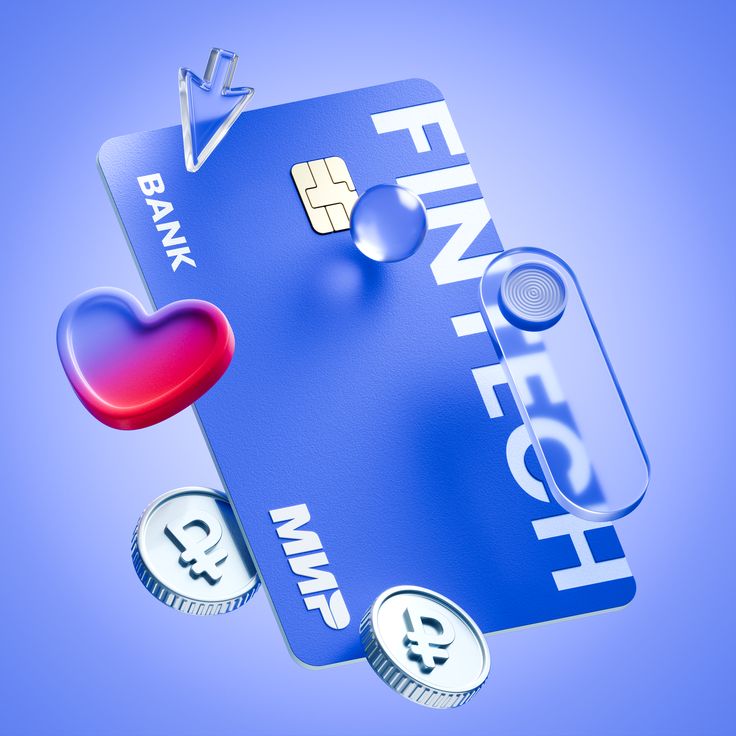Fintech Credit Card is becoming one of the most popular ways for people in the UK to manage spending and credit in a smarter, faster way. Unlike traditional bank cards, it works through technology-driven apps that give instant approvals, live spending alerts, and flexible payment options. It fits perfectly with today’s digital lifestyle, where people want full control of their finances straight from their phones. With better security, transparency, and real-time updates, a Fintech Credit Card is changing how people borrow and pay in daily life — in this article, we are going to explain how it works and why it matters.
Understanding the Fintech Credit Card

Image source: pinterest.com
A Fintech Credit Card is a modern version of a credit card created by a financial-technology company instead of a traditional bank. These companies build smart digital tools that let users handle everything — from applying to repayments — online or through an app. You don’t need long forms or branch visits; the whole process is quick and paper-free.
The card still lets you borrow and repay like a standard credit card, but its technology makes it much easier to manage. You can see transactions instantly, track spending habits, set alerts, and even freeze your card in seconds if it’s misplaced. Some cards also use artificial intelligence to show where your money goes each month.
In short, a Fintech Credit Card offers the same borrowing power but adds the speed, clarity, and flexibility modern users expect. It suits people who prefer to manage finances on the go, without the limits of old-style banking.
Key Features of Fintech Credit Cards

Image source: pinterest.com
Fintech Credit Cards come packed with features designed for digital-first users. Here are the key ones that make them stand out:
- Instant approval and setup – Apply through an app, get approved in minutes, and start using a virtual card straightaway.
- Real-time spending alerts – Every transaction appears instantly on your phone so you always know your balance.
- Smart spending insights – Your spending is grouped into categories like bills, groceries, or travel so budgeting becomes easier.
- Flexible repayment choices – Pay in full or split payments into smaller instalments, depending on what suits your budget.
- Built-in security – Freeze or unfreeze your card with a single tap, and log in using fingerprint or face ID.
- Mobile-wallet integration – Add it to Apple Pay or Google Pay and start spending immediately.
These features make money management simpler, more transparent, and faster. They also appeal to younger UK users who expect financial control to be as easy as using any other app on their phone.
How Fintech Credit Cards Work in Practice

Image source: pinterest.com
Using a Fintech Credit Card is straightforward. You begin by downloading the provider’s app or visiting its website. The sign-up form takes only a few minutes, and approval is usually given right away. Many fintech firms use new technology that looks at more than just your credit score — it can include income patterns or regular spending behaviour.
After approval, you receive a virtual card you can add to your phone’s wallet for instant use. The physical card arrives later by post. Each time you make a purchase, you’ll get a live notification. You can also view your balance, due date, or repayment plan instantly in the app.
Everything about a Fintech Credit Card is built for convenience. There’s no waiting for monthly statements, and you don’t need to phone customer service to change settings. You stay in full control of your card anytime, anywhere.
Comparing Fintech and Traditional Credit Cards

Image source: pinterest.com
Although both types let you spend now and pay later, a Fintech Credit Card differs sharply from a traditional bank card.
Traditional credit cards often come with long forms, slower approval, and limited digital tools. You might only see your full statement at the end of the month. Fintech cards, by contrast, offer a smooth digital experience — instant applications, immediate spending visibility, and in-app control of repayments.
Banks rely mostly on old systems and credit checks; fintech firms use new data models and modern design to improve access and transparency. Yet, banks still carry a reputation for reliability and established customer service, which fintechs sometimes lack.
In the UK, where people are moving rapidly toward mobile and contactless payments, fintech cards reflect how credit use is evolving. They represent flexibility and control, while traditional cards symbolise stability and history. Both can coexist, but the fintech version is clearly shaping the future.
Why Fintech Credit Cards Are Gaining Popularity in the UK

Image source: pinterest.com
The rise of the Fintech Credit Card in the UK is driven by changes in how people live and spend. Most consumers now expect financial services that match the speed of their digital lives. They want instant updates, quick approvals, and fewer hidden fees — something fintech companies deliver very well.
Younger generations prefer managing money on their phones. They see banking as just another app rather than a place to visit. Fintech cards fit perfectly into that lifestyle by giving real-time control.
The UK’s push toward a cashless economy has also boosted demand. With contactless and online payments becoming the norm, users need cards that integrate seamlessly with digital wallets. The friendly branding and straightforward tone of fintech companies make them feel more approachable than big banks, helping them win trust fast.
Simply put, fintech cards offer what people want: speed, simplicity, and honesty. That combination explains their fast growth across the UK market.
Advantages and Benefits of Fintech Credit Cards

Image source: pinterest.com
There are many reasons to choose a Fintech Credit Card, and most come down to better user experience.
- Fast application process – Apply anytime and get approval within minutes.
- Ease of use – Control every feature directly through your mobile app.
- Transparency – See interest rates, fees, and repayment dates clearly.
- Enhanced security – Freeze your card instantly or use biometric login for safety.
- Flexible repayment – Choose between full payment or manageable instalments.
- Personalised insights – Get spending breakdowns that help you plan budgets.
- Rewards and cashback – Enjoy perks that suit digital lifestyles like streaming or travel.
- Accessibility – Some fintechs approve users with limited credit history thanks to fairer data checks.
Ultimately, these benefits turn credit from something complex into something clear and helpful. A Fintech Credit Card isn’t just about borrowing — it’s about learning better money habits through smart tools.
Read also: UHD vs OLED TV: What’s the Difference and Which One Should You Buy in 2025?
Risks and Things to Be Careful About

Image source: pinterest.com
Even the best Fintech Credit Card comes with responsibilities. Because it’s so easy to apply and spend, users can be tempted to overspend. Always remember that it’s still borrowed money, and late payments can harm your credit score.
Another risk is misunderstanding interest and fees. Promotional offers can look attractive but may increase later. Always read terms carefully before accepting an offer.
Customer service can also vary. Some fintech providers only offer online chat or email help, which may not suit everyone. And since these cards operate entirely online, make sure your provider follows strong security and privacy rules.
To stay safe, treat a Fintech Credit Card like any other financial product: spend within your means, track transactions often, and repay on time.
How Fintech Credit Cards Are Changing the Future of Payments

Image source: pinterest.com
The Fintech Credit Card is more than just a product; it’s a symbol of how modern finance is changing. It brings together technology and credit, allowing users to manage money instantly and safely from one device.
As digital finance grows, credit cards are becoming part of a larger network of mobile payments, digital wallets, and financial apps. This trend, known as embedded finance, means payments and credit will soon be available directly inside apps we already use — shopping, travel, or entertainment.
Fintech cards are also pushing traditional banks to modernise. The competition encourages better services, faster updates, and new features across the industry. For UK consumers, this means more choice and better value.
Looking ahead, we can expect fintech cards to include tools powered by artificial intelligence — budgeting advice, real-time fraud protection, and spending predictions — making credit even smarter.
The Fintech Credit Card is not just changing payments; it’s redefining how people interact with money in everyday life.
Read more: What Is vGlasses? The AR-Powered Vascular Navigation Device Transforming Modern Medicine in 2025
Conclusion
In conclusion, the Fintech Credit Card is transforming credit use in the UK by blending technology, convenience, and control. It replaces paperwork and waiting times with speed, transparency, and mobile-first access. Users can track spending instantly, set limits, and repay flexibly, all from one app. Yet, technology doesn’t remove the need for discipline. Responsible use — paying on time and spending wisely — remains the key to maintaining good credit health. When used correctly, fintech cards can help build a positive credit history and simplify everyday payments. As the UK moves further toward a cashless, digital economy, the Fintech Credit Card will continue leading the way, showing how technology can make finance easier, safer, and more personal than ever before.
FAQs
1. What is a Fintech Credit Card?
It’s a credit card managed by a financial-technology company through a mobile app, offering instant approvals, real-time tracking, and flexible payments.
2. How can I apply for one?
You apply online or through the fintech company’s app. The process takes only a few minutes and approval is usually instant.
3. Are Fintech Credit Cards safe?
Yes, they use strong encryption and security. You can also lock or unlock your card from the app for extra safety.
4. Can a Fintech Credit Card help my credit score?
Yes. Paying on time and keeping your balance low can improve your credit score just like any other card.
5. What are the main benefits?
Speed, convenience, flexibility, live spending updates, and transparency. Everything is managed in one app.
6. What are the risks?
Overspending or missing payments can cause extra charges or lower your credit score. Always read the terms and repay responsibly.
7. Why are Fintech Credit Cards popular in the UK?
They match the UK’s move toward digital banking and contactless payments, offering modern, easy-to-use credit access.
8. What is the future of Fintech Credit Cards?
They will become smarter, with AI-based budgeting, more personalised offers, and deeper links with digital wallets and payment apps.




